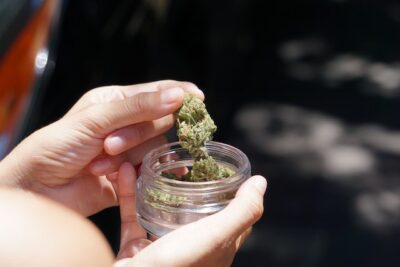You are not alone if you struggle with insomnia during early addiction recovery. This is a very common issue that can be difficult to deal with. Fortunately, many treatment options can help you get the sleep you need. This article will discuss some of the most common treatments for insomnia in early addiction recovery. We will also discuss the benefits of each treatment option and provide tips for choosing the best treatment for you. Let’s get to the list.
Visit a Rehab Center
One of the best ways to get treatment for insomnia in early addiction recovery is to visit a rehabilitation center. As highlighted by the team behind Solace Treatment Center, these rehabs are designed to help you detox from drugs and alcohol and get the treatment you need to recover from your addiction. Rehab centers will also provide you with a safe and comfortable environment to sleep in. Many rehab centers have private rooms where you can sleep without being disturbed. This is a great option if you are struggling to sleep at home or in a sober living environment.
When choosing a rehab, it is important to ensure they offer treatment for insomnia. Not all rehabs offer this, so it is important to ask before committing to a treatment plan. It is also important to visit multiple rehab centers and compare their treatment options before you make a decision. This will ensure that you find the best possible treatment for your needs.
Take Medication
If you are struggling with insomnia, your doctor may prescribe medication to help you sleep. The most common type of medication prescribed for insomnia is a sedative-hypnotic. This medication works by slowing down your brain activity and promoting sleep. Some common sedative-hypnotics include Ambien, Lunesta, and Sonata. These medications are typically taken before bed and should only be used for a short period of time.
If prescribed a sedative-hypnotic, it is important to follow your doctor’s instructions. These medications can be addictive and should only be used as directed. It is also important to talk to your doctor about any other medications you are taking. Some medications can interact with sedative-hypnotics and cause dangerous side effects.
Get Cognitive Behavioral Therapy
Cognitive behavioral therapy (CBT) is one of the best tips to treat insomnia. This therapy works by helping you change the thoughts and behaviors that keep you from sleeping. CBT is often used in conjunction with other treatments, such as medication.
CBT may be an option for you if you are struggling with insomnia. This therapy effectively treats insomnia and can help you get the needed sleep. Talk to your doctor or mental health professional if you are interested in CBT. However, you must limit the usage as it can be quite addictive.
Practice Good Sleep Hygiene
Sleep hygiene is important for everyone, but it is especially important for those in early addiction recovery. Sleep hygiene is a set of habits that promote good sleep. Some good sleep hygiene habits include avoiding caffeine before bed, establishing a regular sleep schedule, and creating a relaxing bedtime routine.
Some things to avoid before bed include eating large meals, drinking alcohol, exercising, and using electronics. It is also important to establish a regular sleep schedule. This means going to bed and waking up at the same time each day, even on weekends. Finally, it is important to create a relaxing bedtime routine. This may include taking a warm bath, reading a book, or stretching.
Many treatment options are available for those struggling with insomnia in early addiction recovery. The best course of action will vary from person to person, but some effective treatments include visiting a rehab center, taking medication, and practicing good sleep hygiene. If you are struggling with insomnia, talk to your doctor or mental health professional to find the best treatment option.









